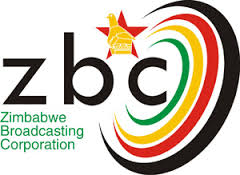Story by Wellington Makonese
ZIMBABWEAN media houses are set to benefit from relations between Zimbabwe and Palestine which have benefited other sectors.
A team of media trainers from the Palestine International Cooperation Agency (PICA), hosted by the Ministry of Information, Publicity and Broadcasting Services in Harare on Monday night, is convinced that the two countries share common interests in fighting western supremacy.
“Our visit is representing a significant milestone in international cooperation strengthen capacities and achieve media excellence as the media shapes social change. We have a shared mission and dedication to equip media and churn a new generation that communicates effectively,” noted Palestinian International Corporation Agency Head of Delegation, Mr Duha Al Dweik.
“We come at a time we are heading for elections and we believe media should be skilled to spread peace. Our fathers of the revolutions had a common enemy and we continue to be in solidarity against imperialism that brought sanctions. This is one of the projects presented and we trust the Zimbabwean Government will bring clearest of elections and we refuse any Interference from external forces,” said Palestinian Ambassador to Zimbabwe, His Excellency Tamer Almassri.
The Minister of Information, Publicity and Broadcasting Services, Senator Monica Mutsvangwa said the gesture by the Palestinian Government feeds into the Second Republic’s engagement and re-engagement thrust.
“I am confident that these study sections will sufficiently capacitate our journalists to deal with election coverage while also broadening their horizons to appreciate the unfolding geopolitical developments that are taking place in the world,” Senator Mutsvangwa stated.
“I am also advised that apart from the political reporters, business journalists and social media experts for all public media entities and select private media houses who will benefit from the training, the Ministry’s Provincial Information Officers (PIOs) have also been earmarked to attend the training programme.”
“This inclusive approach will broaden the reach of the skills impartation and thus ensure that transformation of the media landscape will be expedited. The programme will also cover social media journalists and cyber teams working as we seek to include online content creators.”
“We are leaving no one and no place behind in our endeavour to capacitate our media fraternity. Further to that, and in support of PICA team, we have also blended our own local trainers to ensure that the training courses retain a relevant appeal to our local context,” she said.
“This training initiative is not an isolated knee jerk reaction. Rather, it fits well in the ongoing reorganisation of the media landscape under the Second Republic. You may recall that from the onset of the Second Republic, the thrust of government has been towards opening up the airwaves, providing media plurality, and diversifying opinion in national discourse,” Minister Mutsvangwa added.
She also spoke volumes of government strides to transform the local media landscape.
“To this end, the Second Republic has licensed six commercial television stations, 4 of which are already on air. Furthermore, erstwhile marginalised communities are benefiting from the Second-Republic’s media reforms which have been accelerated through the mainstreaming of community radio stations,” the Minister went on.
Senator Mutsvangwa also said, “Cognisant of the country’s 16 official languages which reflect the diversity of our people, government has so far issued licences to 14 language-based community radio stations. Four of these community radio stations have been capacitated and are now operational.”
“At policy level, the government has made tremendous progress in realigning the legal and regulatory framework to the provisions of our Constitution.”
“We have repealed the Access to Information and Protection of Privacy Act (AIPPA) and in its place we have enacted the Freedom of Information Act, the Zimbabwe Media Commission Act and the Freedom of Information Regulations which provides ambiance for the realisation of freedom of expression. The repealing of AIPPA is a giant step forward in the media reform agenda,” she asserted.
The delegation, which is on a 10-day exchange visit will share expertise with local media players from the print, broadcasting, and government institutions.




